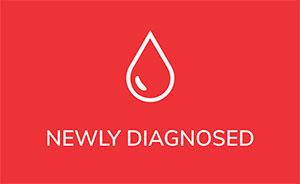What follows is our patient-friendly summary of this research.
The Bottom Line:
CLL patients are at higher risk for several types of cardiac events and have higher rates of in-hospital mortality, regardless of why they were admitted. In addition, this trial was seriously flawed as it did not address what CLL treatments were used. We know certain therapies such as BTKi, especially ibrutinib, are associated with an increased risk of developing atrial fibrillation and hypertension.
Who Performed the Research and Where Was it Presented:
Dr. Ghulam Ghous from the University of Missouri and others presented the results at the American Society of Clinical Oncology (ASCO) Annual Meeting in 2022.
Background:
CLL affects mainly the elderly population, who are already at higher risk for cardiac disease. In addition, targeted therapy such as Bruton tyrosine kinase inhibitors (ibrutinib and acalabrutinb) have been associated with more cardiac morbidity.
Like all those with cancer, those with CLL often have higher markers of inflammation associated with a higher risk of cardiac disease.
The researchers wanted to understand better the incidence, predictors, and outcomes of cardiovascular events in patients with CLL.
Method and Participants:
The data obtained from the National Inpatient Sample from 2019 was examined. This was a retrospective study using an extensive database.
Results:
- CLL patients showed a significantly increased adjusted odds ratio of 1.28 of all causes of in-hospital mortality compared to the general adult population. In other words, having chronic lymphocytic leukemia increased the chance of dying when hospitalized for any reason by 28%.
- Those with CLL stayed longer in the hospital and were more expensive to care for.
- CLL patients had higher odds of developing atrial fibrillation than those without CLL.
- CLL patients had significantly higher odds of fluid around the heart (cardiac tamponade and pericardial effusion).
- The odds of congestive heart failure were not increased in CLL patients.
- The predictors of higher inpatient mortality in CLL patients were:
- older age
- male gender
- black race
- acute kidney injury
- alcohol use
- malnutrition
- being admitted on the weekend
- Predictors for lower mortality were surprisingly:
- smoking
- obesity
Conclusions:
This research tells us that CLL increases the risk of dying when in hospital and of certain cardiac conditions such as atrial fibrillation and fluid around the heart.
The lack of information on patients’ medications makes the findings less valuable. The strange outcome that smoking and obesity lowered the risk of dying in the hospital may result from a lower admission threshold for those patients. Still, its oddity demands some explanation from the authors.
The problem with these retrospective data dives is that they often leave us with more questions than answers because of what is and is not accessible in the electronic records.
Still, we are reminded that CLL patients need to work with their doctors and practice a healthy lifestyle to lower their risk of heart disease, secondary cancers, and other chronic illnesses.
Links and resources:
Watch my monologue on the abstract below:
The ASCO 2022 abstract that gives more detailed statistics can be found by clicking here: Incidence, Predictors, and Outcomes of Cardiovascular Events in Patients with Chronic Lymphocytic Leukemia.
Stay strong. We are all in this together.
Brian
Brian Koffman MDCM (retired) MS Ed (he, him, his)
Co-Founder, Executive VP, and Chief Medical Officer, CLL Society, Inc.

















